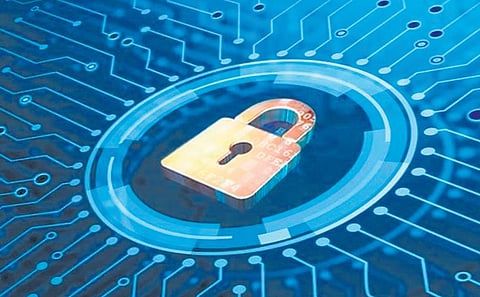

THIRUVANANTHAPURAM: The state police have started transferring sensitive data through Virtual Private Network (VPN) in a bid to enhance safety after several unsuccessful attempts were made by hackers abroad to intrude into the systems.
The data pertaining to CCTNS (Crime and Criminal Tracking Network Systems) and popular police apps such as Pol-App and miCoPS are now being fully transferred through the VPN, while efforts are on to stream the CCTV visuals from all the police stations via the network.
A senior police official said the work to enable data-sharing from CCTVs in police stations via VPN is on and is expected to be completed within November. “The visuals from CCTVs in police stations are very sensitive and it could jeopardise the security of the state if the footage is accessed by undesirable elements by hacking into the open web platform. Hence, we have decided to transfer the data via VPN so that it will remain secure,” the official said.
VPN offers an encrypted form of communication through a virtual tunnel in the wider internet that helps the user sidestep surveillance and interception. What prompted the police to overhaul the existing file transferring protocol was the attempts made by hackers to glean information from sensitive portals during the G20 Sherpas Meeting at Kumarakom from March 30 to April 2, 2023.
Highly-placed sources said the cyber security wing detected attempts from Pakistan-based hackers to gain access to sensitive repositories. “Multiple attempts were made targeting sensitive portals. But our cyber agencies managed to thwart them all,” the sources said.
The department launched the project to usher in a paradigm shift in its communication by January this year. The sources added that file transfer in several vital sites such as the e-office portal, which enables digitisation of the file flow in government departments, will soon be switched to VPN.
“Additional security features such as double authentication have been introduced in some of the portals where file transfer has been taking place in open web channels. These security features will continue till their file movement is switched to the VPN,” the sources said.
After migrating to VPN, selected IP addresses are whitelisted and they alone are given access to sensitive data. This will prevent unauthorised access to classified information, thereby preventing leakage of data that could compromise national security, the sources added.
Lone access
VPN offers an encrypted form of communication through a virtual tunnel in the wider internet that helps the user sidestep surveillance and interception.
After migrating to VPN, selected IP addresses are whitelisted and they alone are given access to sensitive data.
This will prevent unauthorised access to classified information, thereby preventing leakage of data that could compromise national security